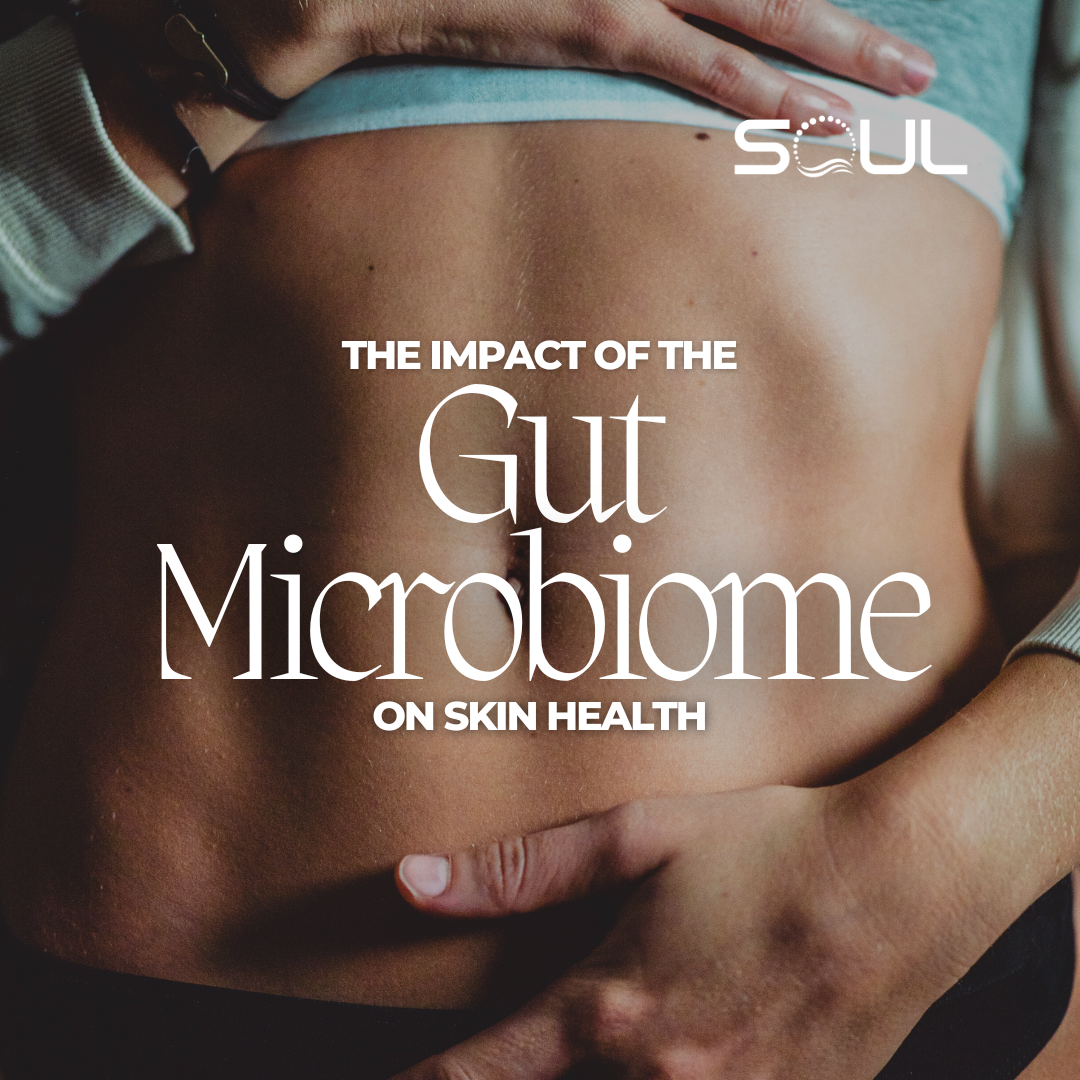
Unlocking the Secret to Radiant Skin: The Gut-Skin Axis Revealed
Imagine if the key to glowing, healthy skin wasn't found in a bottle or a jar, but deep within your own body. What if the secret lay in the intricate community of microorganisms residing in your gut? Ladies and gentlemen, let me introduce you to the revolutionary concept that's turning the skincare world upside down: the gut-skin axis.
The Hidden Dialogue Between Your Gut and Skin
Your body is not just a collection of isolated systems working independently. It's a symphony of interconnected networks, and at the heart of this orchestra is the gut microbiome—a bustling metropolis of bacteria, fungi, and other microorganisms living harmoniously in your gastrointestinal tract.
This microbiome doesn't just influence digestion; it engages in a constant dialogue with your skin through what's known as the gut-skin axis. This communication highway allows for a two-way exchange of signals, affecting everything from inflammation to immune responses.
Inflammation: The Double-Edged Sword
Inflammation is your body's natural defense mechanism. But when the gut microbiome falls out of balance—a state known as dysbiosis—it can trigger chronic inflammation. This isn't the kind of acute inflammation that heals a cut; it's a persistent, low-grade fire that smolders beneath the surface.
This chronic inflammation manifests visibly on your skin as acne, eczema, psoriasis, and rosacea. Redness, swelling, irritation—they're all distress signals from your skin, echoing the turmoil within your gut. By restoring balance to your gut microbiome, you can douse these internal flames and witness a transformation in your skin's health.
The Immune System's Training Ground
Consider your gut microbiome as the boot camp for your immune system. Here, immune cells learn to distinguish friend from foe. A well-balanced microbiome equips your immune system to react appropriately—not overreacting to harmless substances nor underreacting to genuine threats.
An educated immune system means fewer allergic reactions and autoimmune flare-ups that can wreak havoc on your skin. Moreover, beneficial gut bacteria produce antimicrobial peptides that patrol your skin's surface, keeping pathogenic invaders at bay and maintaining a harmonious microbial community on your skin.
Nutrient Absorption: Feeding Your Skin from Within
Your skin is a reflection of what you feed your body—but it's not just about the nutrients you consume; it's about what your body absorbs. The gut microbiome plays a pivotal role in breaking down complex carbohydrates, fibers, and synthesizing essential vitamins.
When dysbiosis occurs, nutrient absorption can falter, leading to deficiencies in vitamins like A, C, D, and E—all critical for skin health. Dryness, slow wound healing, and a lackluster complexion can all be traced back to a gut that's not pulling its weight. Nurturing your gut flora ensures that every nutrient you consume is efficiently utilized, giving your skin the nourishment it craves.
Short-Chain Fatty Acids: The Unsung Heroes
Through the fermentation of dietary fibers, your gut microbiome produces short-chain fatty acids (SCFAs) like butyrate, acetate, and propionate. These SCFAs are more than just metabolic byproducts; they're powerful anti-inflammatory agents.
SCFAs strengthen the gut lining, preventing harmful substances from leaking into the bloodstream—a phenomenon known as "leaky gut" that can exacerbate skin inflammation. They also enhance the skin's barrier function, locking in moisture and keeping irritants out. In essence, SCFAs act as messengers of peace, promoting harmony both in the gut and on the skin's surface.
Hormonal Harmony: Balancing the Scales
Hormones are the body's chemical messengers, and the gut microbiome has a significant say in their regulation. An imbalanced microbiome can disrupt the metabolism of hormones like insulin, cortisol, estrogen, and testosterone—all of which have direct impacts on skin health.
For instance, certain gut bacteria produce an enzyme called beta-glucuronidase, which can alter estrogen levels, potentially leading to hormonal acne or other skin issues. By fostering a diverse and balanced microbiome, you support the proper metabolism of hormones, paving the way for clearer, healthier skin.
The Mind-Gut-Skin Connection
Stress is no stranger to skin problems. Acne breakouts before a big presentation or eczema flare-ups during stressful times are all too common. This is where the gut-brain-skin axis comes into play.
Your gut microbiome communicates with your brain via the vagus nerve, influencing stress responses and mood. A healthy microbiome can help modulate stress levels, which in turn reduces stress-induced skin issues. Incorporating stress-reducing practices like meditation, exercise, and adequate sleep not only benefits your gut flora but also translates to calmer, clearer skin.
Taking Action: Nurturing Your Gut for Glowing Skin
So, how can you harness the power of the gut-skin axis?
-
Balanced Diet: Embrace a diet rich in fiber, fruits, vegetables, and whole grains. These feed your beneficial gut bacteria and promote SCFA production.
-
Probiotics and Prebiotics: Incorporate fermented foods like yogurt, kefir, and sauerkraut, which introduce beneficial bacteria. Prebiotic foods like garlic, onions, and asparagus feed these bacteria.
-
Limit Antibiotics: Use antibiotics judiciously, as they can disrupt your gut microbiome balance.
-
Manage Stress: Practice mindfulness, yoga, or any stress-reducing activities to support the gut-brain axis.
-
Stay Hydrated: Adequate water intake supports digestion and nutrient absorption.
The Future is Inside Out
Scientific exploration is just beginning to unravel the complexities of the gut-skin axis. While more research is underway, one thing is clear: taking care of your gut health is an investment in your skin's future.
The pursuit of radiant skin might just start with a journey inward—into the depths of your gut microbiome. By fostering this internal ecosystem, you're not just treating skin conditions; you're promoting overall wellness. After all, beauty isn't just skin deep—it's a reflection of the harmony within.
These statements have not been evaluated by the Food and Drug Administration. This product is not intended to diagnose, treat, cure or prevent any disease. This article is for informational purposes only and is not a substitute for professional medical advice. Always consult your healthcare provider regarding any health concerns or before starting new supplements.
